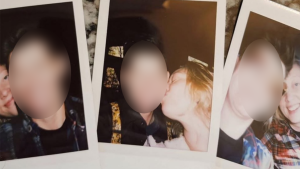Hollywood Feud Erupts: Blake Lively and Jason Baldoni Clash in $400 Million Lawsuit
A dramatic legal battle has engulfed Hollywood, pitting actors Blake Lively and Jason Baldoni against each other in a series of escalating lawsuits and public accusations. The conflict, stemming from their collaboration on the film "It Ends With Us," which Baldoni directed and co-starred in with Lively, has taken a bizarre turn with the revelation of text messages allegedly sent by Lively, invoking the iconic "Game of Thrones" character Daenerys Targaryen, also known as Khaleesi.
The feud began with a series of complaints and accusations traded between Lively and Baldoni, culminating in Lively filing a complaint with the California Civil Rights Department, alleging sexual harassment and a plot to destroy her reputation orchestrated by Baldoni. The director also sued The New York Times over their coverage of the unfolding drama. The latest volley in this legal war is a staggering $400 million lawsuit filed by Baldoni against Lively and her husband, actor Ryan Reynolds, demanding a jury trial to settle the matter.
The crux of the latest controversy revolves around text messages allegedly sent by Lively to Baldoni, unearthed as part of the lawsuit documentation. In these messages, Lively purportedly compares herself to Daenerys Targaryen, the "Mother of Dragons" from the hit HBO series, hinting at possessing her own figurative "dragons" to protect her interests. The text, obtained by CNN, reads: "If you ever get around to watching Game of Thrones, you’ll appreciate that I’m Khaleesi, and like her, I happen to have a few dragons. For better or worse, but usually better. Because my dragons also protect those I fight for. So really we all benefit from those gorgeous monsters of mine. You will too, I can promise you.”
The invocation of Daenerys Targaryen, a complex character whose descent into tyranny marked the final season of "Game of Thrones," adds a layer of intrigue and ambiguity to the already convoluted narrative. While the text message might be interpreted as playful banter, the comparison to a character ultimately known for her ruthless actions and fiery destruction raises questions about Lively’s intent. The reference to her "dragons" as "monsters," while potentially affectionate, adds a disturbing undertone given Daenerys’s eventual descent into madness.
The public and media have been quick to speculate on the identities of Lively’s "dragons," with many suggesting they represent her husband, Ryan Reynolds, and close friend, Taylor Swift. This interpretation has sparked outrage among Swift’s fans, who find the characterization of their idol as a "monster" offensive and inappropriate. The ambiguity of the text leaves room for multiple interpretations, but the negative connotations associated with Daenerys’s later actions in "Game of Thrones" inevitably cast a shadow over Lively’s message.
The ongoing legal battle between Lively and Baldoni echoes the highly publicized defamation trial between Johnny Depp and Amber Heard, a spectacle that ultimately tarnished the reputations of both parties involved. The public airing of grievances, accusations, and private communications rarely results in a clear victor. This case, with its escalating lawsuits, cryptic messages, and public speculation, seems destined to follow a similar trajectory, potentially damaging the careers and public images of all involved. The invocation of Daenerys Targaryen, a character whose legacy is intertwined with both power and destruction, serves as a potent symbol of the potentially devastating consequences of this Hollywood feud.
The situation remains murky, with conflicting accounts and unverified information clouding the narrative. CNN, while reporting on the contents of the lawsuit, acknowledges that they have not independently verified the authenticity of the text messages. As the legal proceedings unfold, the truth behind the accusations and the meaning of Lively’s cryptic message may become clearer. However, like the game of thrones itself, this Hollywood battle seems destined to leave casualties on both sides, regardless of the final verdict. The comparison to Daenerys, the once-revered Khaleesi who ultimately succumbed to her own destructive impulses, serves as a chilling reminder of the dangers of unchecked ambition and the potential for even the most promising figures to fall from grace. Whether Lively intended the comparison to be ironic, playful, or menacing, the shadow of Daenerys’s fiery reign hangs heavy over the ongoing feud, adding another layer of complexity to an already tangled web of accusations and denials.














